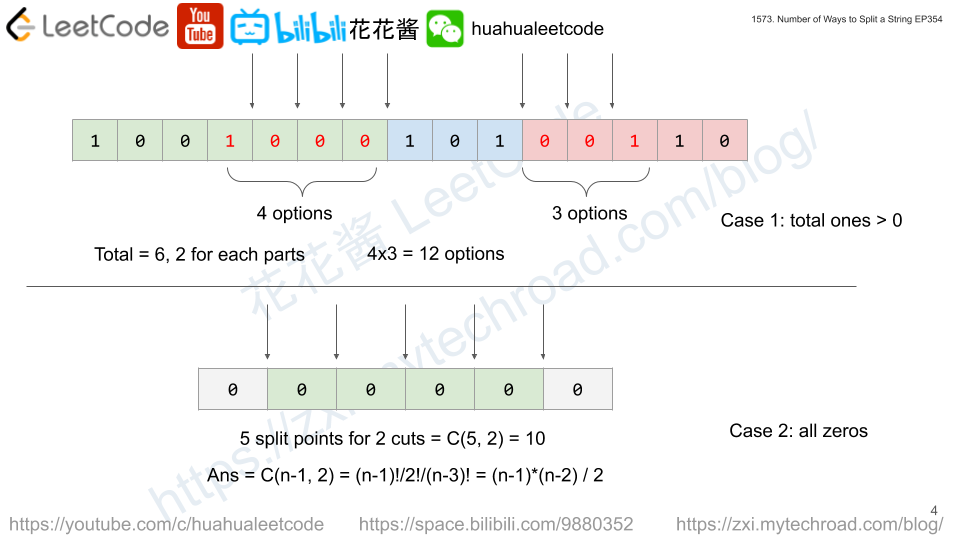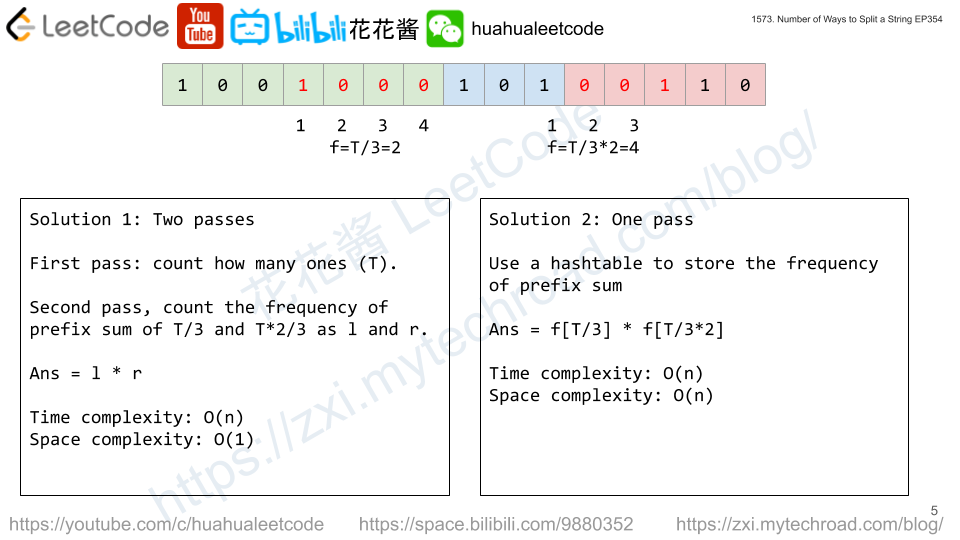A decimal number is called deci-binary if each of its digits is either 0 or 1 without any leading zeros. For example, 101 and 1100 are deci-binary, while 112 and 3001 are not.
Given a string n that represents a positive decimal integer, return the minimum number of positive deci-binary numbers needed so that they sum up to n.
Example 1:
Input: n = "32" Output: 3 Explanation: 10 + 11 + 11 = 32
Example 2:
Input: n = "82734" Output: 8
Example 3:
Input: n = "27346209830709182346" Output: 9
Constraints:
1 <= n.length <= 105nconsists of only digits.ndoes not contain any leading zeros and represents a positive integer.
Solution: Return the max digit
Proof: For a given string, we find the maximum number m, we create m binary strings.
for each one, check each digit, if it’s greater than 0, we mark 1 at that position and decrease the digit by 1.
e.g. 21534
max is 5, we need five binary strings.
1. 11111: 21534 -> 10423
2. 10111: 10423 -> 00312
3: 00111: 00312 -> 00201
4: 00101: 00201 -> 00100
5: 00100: 00100 -> 00000
We can ignore the leading zeros.
Time complexity: O(n)
Space complexity: O(1)
C++
|
1 2 3 4 5 6 7 |
// Author: Huahua class Solution { public: int minPartitions(string n) { return *max_element(begin(n), end(n)) - '0'; } }; |

